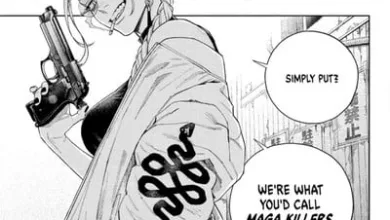Is OEL Manga Really Manga? – This Week in Anime

Viz debuted its new Originals One-Shots comic program, making way for the age-old discussion of whether manga is a “style” or based on country of origin.
Disclaimer: The views and opinions expressed by the participants in this chatlog are not the views of Anime News Network.
Spoiler Warning for discussion of the series ahead.
My Hero Academia, Yokai Buster Murakami, The Stranger, Hunter X Hunter, Ancient Melody, Cinematic Certitude, Skin & Bone, and One Piece are available from Viz Media. The Sherlock manga and Peepo Choo are available from Penguin Random House, and Sun Princess is available on MANGA Plus.
Go-Go Mystery Machine (upcoming) and My Adventures with Superman are currently streaming on HBO Max, while Scott Pilgrim Takes Off is available on Netflix. Tower of God and Solo Leveling are currently streaming on Webtoons.
Lucas, we’ve worked to solve quite a few mysteries since you came on board. What technically counts as an “anime game?” What does a glut of seasonal isekai look like to someone who hasn’t made themselves suffer through those smorgasbords for years? Now, it’s time to get to the bottom of a truly contentious question:
What is manga?
Lucas
I’m so glad we’re finally getting to the bottom of this together, Chris. To start with the basics, Merriam-Webster gives two tautological definitions for the art form. The first is “Japanese comic books and graphic novels considered collectively as a genre.” The second is “an individual comic book or graphic novel of the manga genre.”
Though, as with other definitions rooted in origins and loanwords, the line has been blurry since publishers started bringing Japanese comics stateside, and other creators here were inspired to draw in their style. And it’s a question that’s converging again as Viz launches “Originals One-Shots”—curated comics from English-language creators published by the same guys putting out One Piece.
To your point, though, I was surprised and intrigued when Viz dropped this announcement the other week. On the one hand, this could be a fantastic opportunity to create a better pipeline to elevate manga and manga creators outside of Japan. Especially since current systems, like the MANGA Plus Creators program, are glorified popularity contests that are super vulnerable to viewership manipulation.
On the other hand, manga is pretty commonplace in the global comic world, and most people in either space read a good amount of the other. Manga has been influencing the global comics industry for at least 15 years, and as the differences between “manga” and “comics” grow increasingly slimmer, it feels like Viz is a little late to the party on this program.
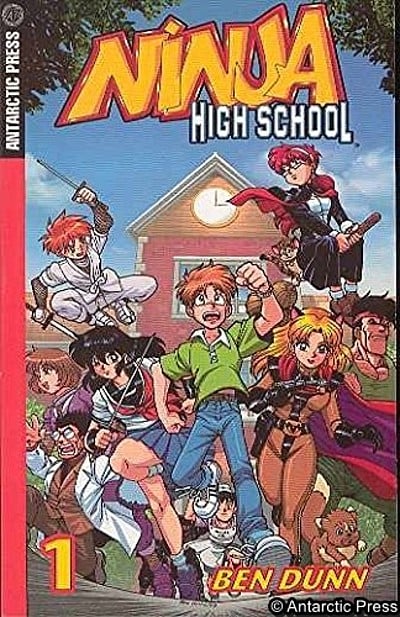
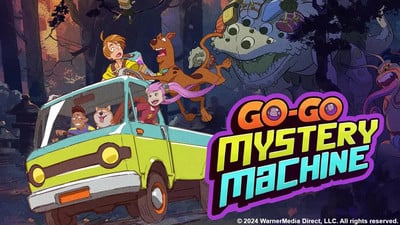
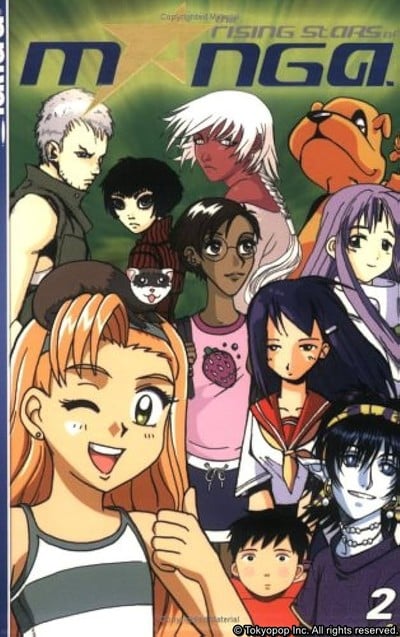
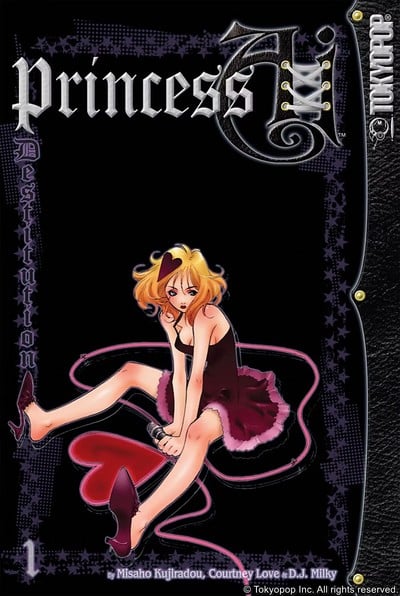
Also, I should probably say that I genuinely love that enough creatives in TV, film, and publishing have an affinity for anime and manga and that the elements that made anime and manga iconic in the West are starting to appear more regularly in Western productions. Even my cold and blackened heart can admit that it’s rad as hell that there’s a Sailor Moon-esque transformation sequence in the My Adventures with Superman series!
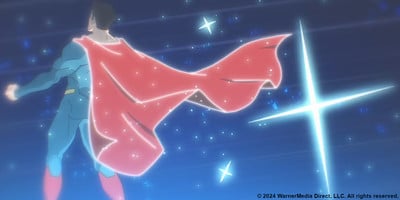
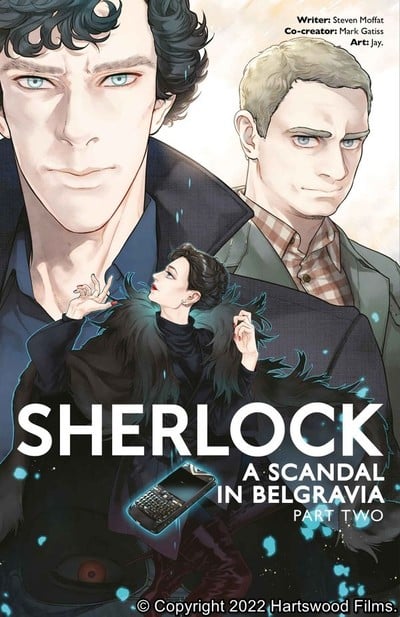
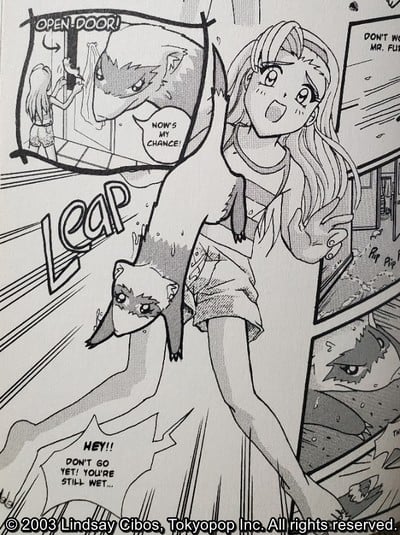
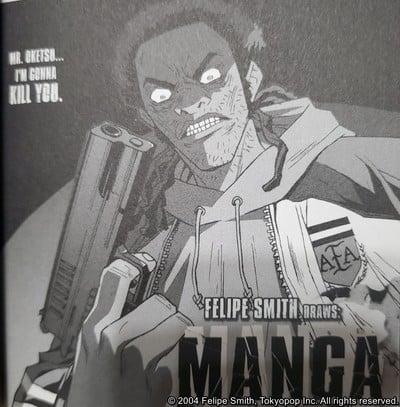
The results cast a pretty wide net. You’d have Jared Hodges and Lindsay Cibos telling a very manga-looking story about a cute pet, compared to something like Felipe Smith debuting an intense personal screed that questioned what submissions to a manga-styled talent contest ought to even look like.
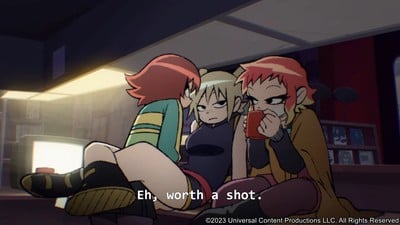
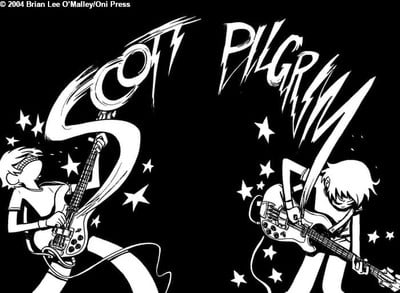
Also, to argue for this closing Venn diagram from the opposite side, one of the biggest anime and manga in production today is equal parts Teen Titans and Harry Potter. If My Hero Academia is the byproduct of an increasingly globalized entertainment landscape, it only makes sense that Western media that draws upon East Asian media for inspiration would become increasingly common, too.
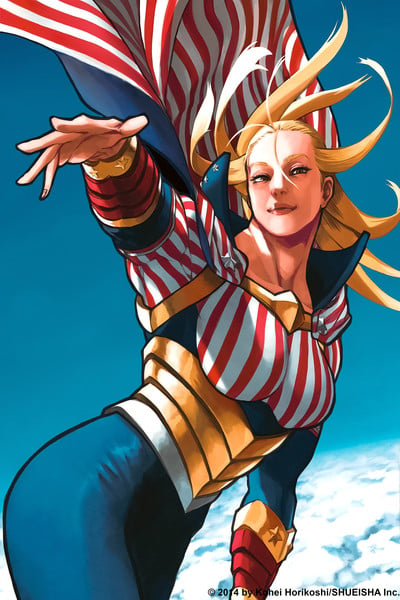
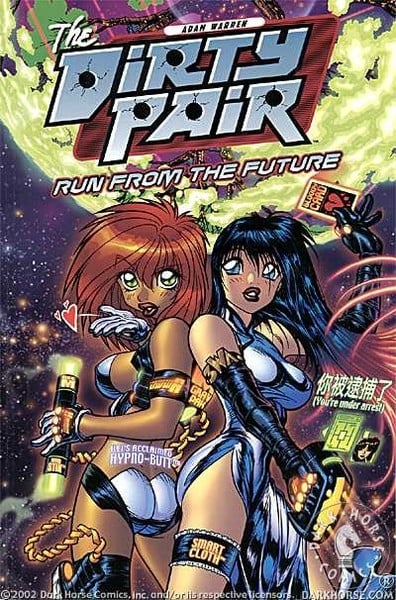
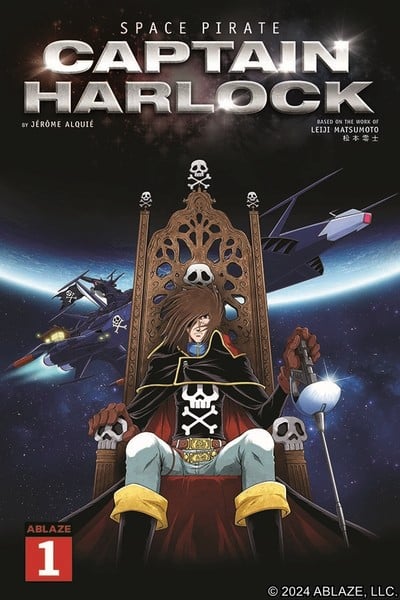
My often-contradictory particularities mean I think of these more as “comics” than “OEL manga,” which is funny when you consider they’re technically cut from 100% Japanese IP source material.
Case in point: Sun Princess by Georgia Henderson is an awesome, hilarious, and heartwarming manga everyone should read!
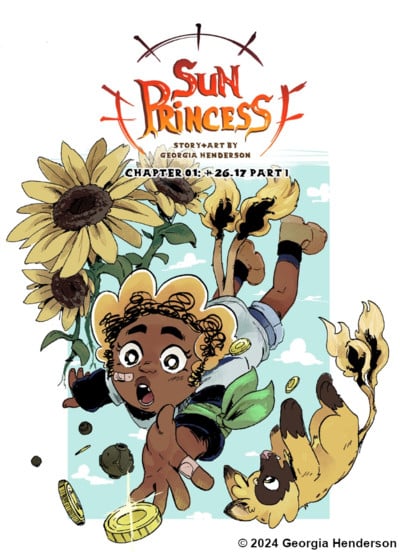
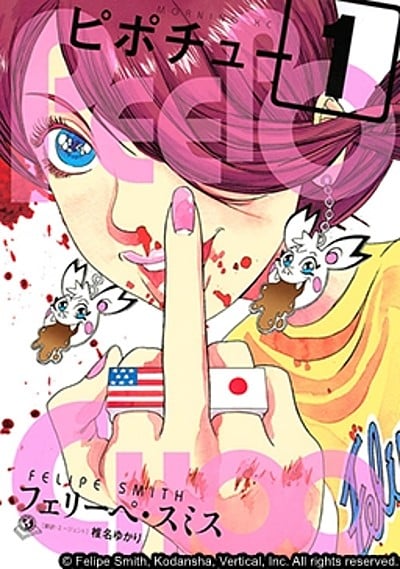
On the other hand, you’ve got Gurihiru, an illustrating team from Japan who primarily works for Western comic publishers like Marvel. I love their work on Power Pack, but I’d be hard-pressed to call that one “manga.” But their forthcoming Unico: Awakening is based on a classic Japanese IP and is actively being promoted as a “manga” by its publisher, Scholastic.
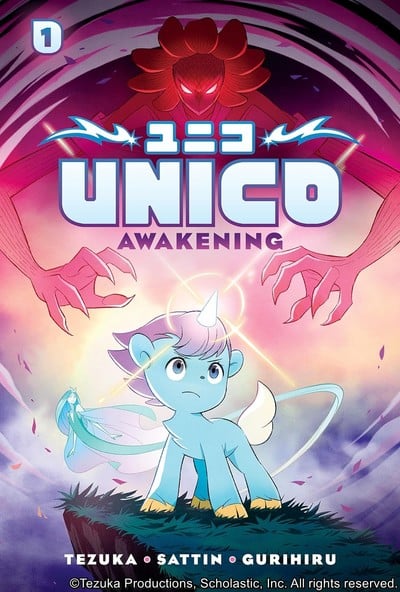
Slight tangent, but I’d be remiss if I didn’t note that the Peepo Choo cover kicks SO MUCH ass!
Smith is a master of an artist; no wonder he broke into the manga scene on both sides of the Pacific and did his own work for Marvel. He created Robbie Reyes, the All-New Ghost Rider! For that, he has my undying respect.
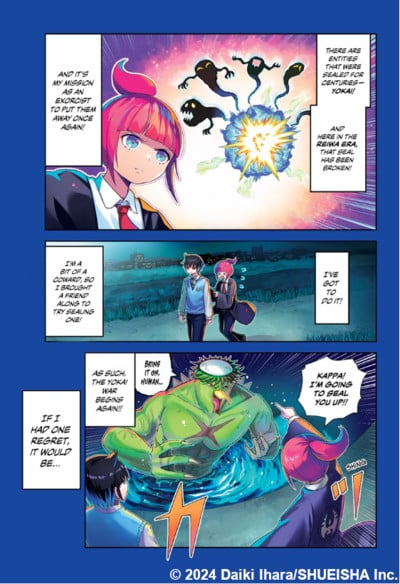
Haha, even if it’s a deliberate deconstruction of the mico-genre, the brand new Yokai Buster Murakami series is now the umpteenth series to appear in the publication that can be boiled down to “High Schoolers vs Japanese Folklore.” All I’m saying is that maybe people should focus more on telling the story they want to tell and less on being a part of a medium that feels more derivative than ever at its top level.
Also, for what it’s worth, I’m having a pretty solid time with the Originals One-Shots so far! Liam Naughton’s The Stranger stands out. The art style is evocative of Gō Nagai, and that older look helps me get into the well-worn body snatcher storyline.
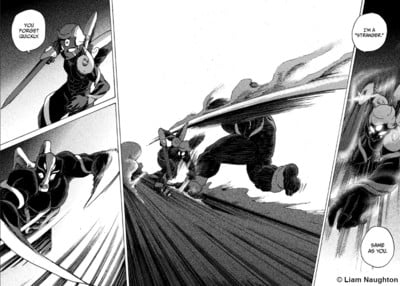
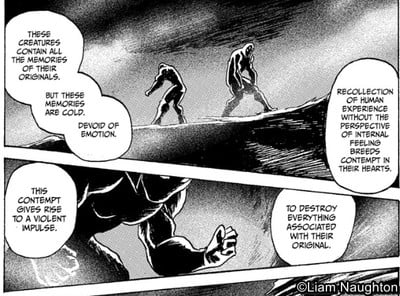
This gets back to that idea of influence we’ve been touching on, as various other Japanese franchises will naturally lend inspiration to anyone sending in submissions to the publisher of Naruto.
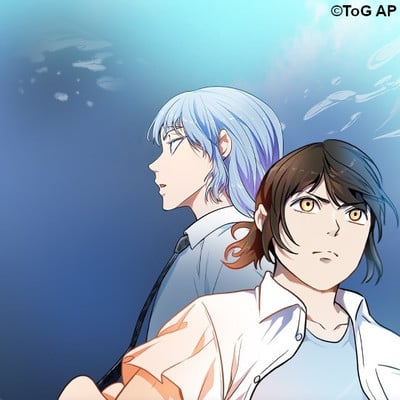
People won’t look back to older works for inspiration unless it ties into what they’re trying to create. I hope people do, as works that draw from older series are far more appealing to me personally than yet another manga series that tries and fails to capture what made YuYu Hakusho or Dragon Ball so special.
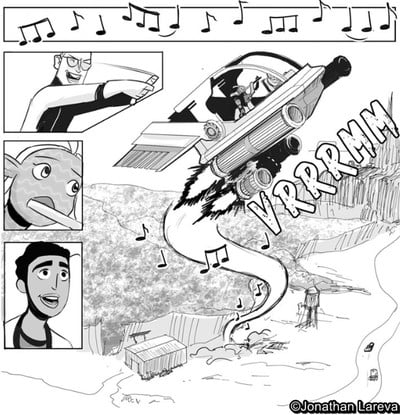
But thus far, we aren’t seeing as much of a spread between drama, slice-of-life, and allegories for kids in comas the way we got from Rising Stars of Manga back in the day. That could be a numbers game at this point, and future Originals One-Shots entries might diversify.
I loved that element of Ancient Melody too! I like One Piece as much as the next guy, but its growing popularity feels like it’s having a flattening effect on fantasy-adventure stories in the manga medium. This take on that genre felt like a breath of fresh air, and I also hope other one-shots in this program can play into those less common genres.
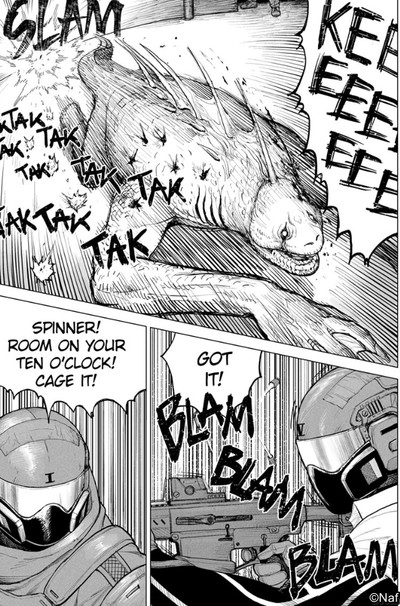
All of these stories can potentially be expanded into full series, but I am most curious about this one and its long-term potential.
Interesting! Cinematic Certitude is the one that resonated with me the least, haha! It had some fairly enticing worldbuilding and incredibly detailed and sleek artwork, but the character writing and pacing were a bit boilerplate for me. I’d be much more interested in reading Naf’s subsequent, hopefully longer work rather than a continuation of this one-shot.
Our different reactions highlight why increasing the number of entries and their variety can only benefit these one-shots! Different stories will ring differently for different readers—that speaks to the value of bringing in new creators with fresh backgrounds and perspectives under a program like this. Granted, there’s an arguable point that new creators don’t need something like this model to get their work out there. The internet has democratized the publishing of comics for decades now, allowing for the independent release of unique stories. But getting to stand on the shoulders of Shonen Jump certainly can’t hurt your visibility.
Absolutely! The webcomic creators I’ve talked to have been pretty candid about this program not being the best fit for them, so long as making a webcomic is a passion project or side hustle. But for people more focused on working in any section of the global comics industry, having a Shonen Jump published project in your portfolio definitely can’t hurt!
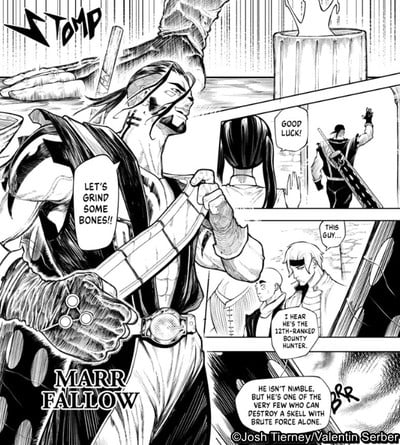
They talk about how simple visibility is a major point of the Originals One-Shots program, specifically angling to help creators forge industry connections that could boost later works the way some Rising Stars entrants were able to do.
Will the VIZ Originals One-Shot program guarantee the authors it publishes success in the comics world? No, but it gives them as much leg up as anyone in this space could hope.
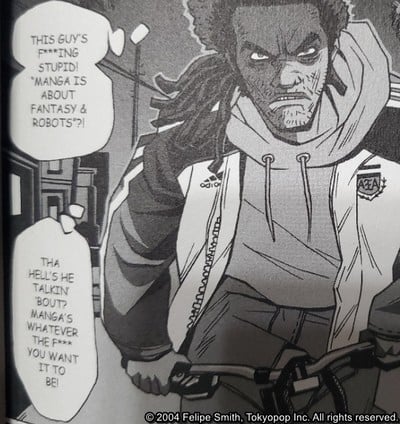
Topping Tokyopop is a low bar to clear. Still, with the names attached and the quality of the work we’ve seen already, I think we’re right to be cautiously optimistic about the future of the Viz Originals One-Shot program and its potential to bring about healthy and long-lasting change in the manga/comics medium.
Source link
#OEL #Manga #Manga #Week #Anime

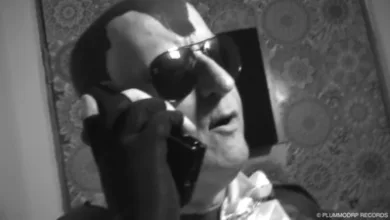
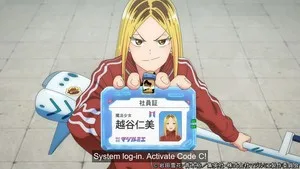
![For the Fans[ervice] - This Week in Anime](https://theanimenews.net/wp-content/uploads/2024/11/1732205217_For-the-Fanservice-This-Week-in-Anime-390x220.webp)
